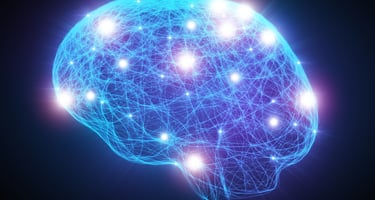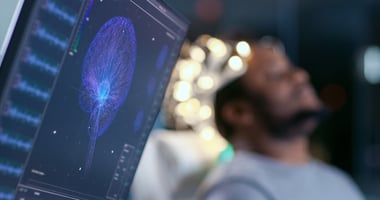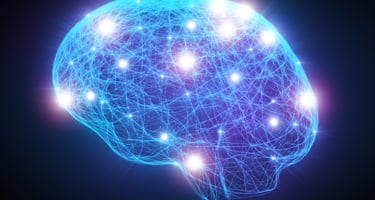TMS More Effective Than Next-Step Antidepressant Treatment, Study Shows

“rTMS should be considered as a viable treatment option at an early stage of the treatment algorithm and may be more effective than antidepressant medication switch or augmentation,” wrote Iris Dalhuisen, Ph.D., of Radboud University Medical Center, the Netherlands, and colleagues.
Eighty-nine patients with unipolar nonpsychotic depression who had not responded to at least two medication trials (including at least one antidepressant) were randomized to receive either rTMS or the usual next treatment as indicated in Dutch practice guidelines.
Patients in the rTMS group received 25 sessions of high-frequency (10 Hz) TMS delivered to the left dorsolateral prefrontal cortex over an eight-week period; rTMS patients could remain on their existing medication. Those receiving treatment as usual either switched their current medication to a tricyclic antidepressant or augmented their current medication with lithium or a second-generation antipsychotic.
All patients also received either group or individual psychotherapy, of a variety of types, at least once a week.
The primary outcome was a change in depression severity based on the Hamilton Depression Rating Scale (HAM-D) after eight weeks. Secondary outcomes included remission rates as well as changes in specific depression-associated symptoms (anhedonia, anxiety, sleep, rumination, and cognitive reactivity).
Patients in the rTMS group experienced an average decrease in HAM-D scores of 10.02 points compared with just 4.19 among those in the medication group. Patients receiving rTMS (27.1%) were also significantly more likely to achieve remission of symptoms compared to those receiving another antidepressant (4.9%). They also experienced a greater reduction in symptoms of anxiety and anhedonia (inability to enjoy normally enjoyable activities).
The authors said analysis of the follow-up results of this ongoing study will be crucial. “Analysis of these data needs to establish what the long-term effectiveness and cost-effectiveness of both treatments is and whether rTMS still outperforms medication after several months,” they wrote. “Our cost-effectiveness analysis will show whether this result can be replicated based on real-world data.”
For related info, see the Psychiatric News article, “TMS Should Be Considered as First-Line Treatment for Moderate to Severe Major Depressive Disorder,” now on Newswire.
(Image: Getty Images/iStock/Grafissimo)
Don't miss out! To learn about newly posted articles in Psychiatric News, please sign up here.





